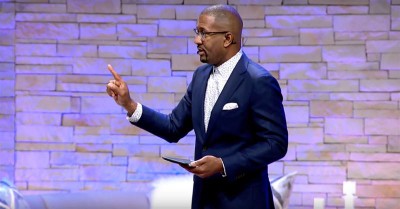
Conventional wisdom encourages young people to wait until their 30s to marry, but new research finds that the lowest divorce rates are among religious adults who married in their 20s and did not cohabitate.

Conventional wisdom encourages young people to wait until their 30s to marry, but new research finds that the lowest divorce rates are among religious adults who married in their 20s and did not cohabitate.
New data is poking holes in what’s become a prominent cultural myth. “When it comes to divorce,” write Brad Wilcox and Lyman Stone in The Wall Street Journal, “the research has generally backed up the belief that it’s best to wait until around 30 to tie the knot.” This is because the divorce rate is generally lower for those who wait to wed. However, according to the National Survey of Family Growth, there’s an interesting exception to this modern-day rule of thumb. Couples in their 20s who don’t cohabitate first have some of the lowest divorce rates of any group.
Earlier this month, David Ayers at the Institute for Family Studies found that nearly half of evangelical Protestants aged 15-22 who were not currently cohabiting or married, said that they would probably or definitely cohabit in the future.
The rise of cohabitation has followed not only a shift of attitudes about out-of-wedlock sex, but about the institution of marriage itself. Several years ago, another Pew study found that more than half of young people in America thought marriage was “obsolete.”
A Dallas church is challenging cohabitating couples to stop living together – and it’s offering a free wedding and wedding reception to those who follow through with marriage.
The offer includes free dresses, tuxedos, wedding rings, cake and a wedding reception. It also includes 10 weeks of counseling and the first month’s rent for living separately.
“If you commit today, we will have you married in the next 90 days,” pastor Bryan L. Carter of Concord Church in Dallas told the congregation Sunday.
The goal, he added, was to give cohabitating couples “a pathway in the honoring of God in your relationship.”
“Church is not just about calling up where we're short, but the church is also a place where you can find hope and healing and restoration and redemption for wherever you might be in your life,” he said to applause.
It is the fourth time Concord Church has given the offer – or “challenge” – to members. About 60 couples have accepted it and been married.
“This is your time now,” he said.Preaching from Hebrews 13:4, Carter listed five myths of living together before marriage:
Photo courtesy: Concord Church





